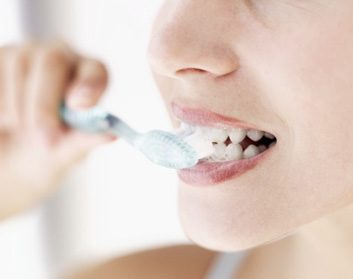
1. Oral health and cardiovascular health
Gum inflammation has been shown in several studies to raise your risk of heart disease and stroke. This is thought to be because gum disease increases the inflammation throughout your body, which is known to lead to cardiovascular disease.
Studies link oral inflammatory disease and elevated heart disease risk. According to the Canadian Academy of Periodontology, people with periodontal disease are at greater risk of heart disease and have twice the risk of having a fatal heart attack than people without periodontal disease.
Gum disease from extended bacterial exposure can lead to cardiovascular disease as it may increase the inflammation level throughout the body. Inflammation is a major risk factor for heart disease. Your dentist or hygienist should ask you about your heart health and family history of heart disease and conversely, cardiologists should examine your oral health. A problem in one area may signal trouble in the other.

2. Oral health and diabetes
While it’s known that people with diabetes are more prone to gum disease, surprising new studies suggest that serious gum disease may actually contribute to diabetes as it affects blood glucose control. The Canadian Diabetes Association says, “Because periodontal disease is an infection, bacteria produce toxins that affect the carbohydrate metabolism in individual cells. It is also thought that the host response to periodontal bacteria can increase insulin resistance and, therefore, blood glucose levels.” This two-way link is a wake-up call to take care of your teeth, especially since the incidence of diabetes is rising.

3. Oral health and lung infections
Because people with periodontal disease have more bacteria breeding in their mouths, they’re more likely to inhale germs that can lead to lung infections like pneumonia. For those who have pre-existing lung problems like chronic obstructive pulmonary disease (COPD), gum disease may make it worse.

4. Oral health, pregnancy and your baby
Studies show that pregnant women with progressive gum disease are more likely to develop gestational diabetes, deliver pre-term or have a low-birth-weight baby.
Regular checkups with a dentist and hygienist become even more important during pregnancy. Health Canada reports there are ongoing studies examining whether pregnant women with poor oral health may be at higher risk of delivering pre-term, low birth weight babies than pregnant women with good oral health.
Babies born pre-term or with a low birth weight have a higher risk of complications including developmental problems, asthma, ear infections, birth abnormalities, behavioural difficulties and may have a higher risk of infant death. Women who are pregnant should take extra care to keep their teeth at their best, not just for themselves, but for their babies too.

5. Teeth grinding and joint health
In most cases bruxism is mild. But, when it’s frequent and severe, grinding your teeth can aggravate the joints in your lower jaw, also known as the temporomandibular joints, or TMJs. This can lead to pain or tightness in the joint area, and even earaches and headaches.
Of course, bruxism is bad news for your teeth, too. The habit can wear down your enamel, cause increased tooth sensitivity, and result in chipped or broken teeth. “Some people are putting incredible forces on their teeth,” says Dr. Ron Smith, a dentist in Duncan, B.C., and president of the Canadian Dental Association.

6. Smoking and cancer
This hard-to-quit habit can increase your chances of developing a life-threatening illness, but the good news is that whether you’ve been a smoker for one year or for ten, quitting smoking can quickly lower your risk of developing oral cancer, lung cancer, heart disease, emphysema and painful lesions in the mouth that do not heal.
If you’re looking for another reason to quit, the threat of a missing tooth might persuade you to pass on purchasing your next pack. In addition to a long list of negative cosmetic effects, including a reduced sense of smell and taste, bad breath, a receding gum line and yellow-tinted teeth, tobacco use is a major cause of tooth loss in adults.

7. Tongue health and germs
Far from smooth, your tongue is covered in tiny bumps, called papillae. “The surface of the tongue can harbour a lot of bacteria,” says Dr. Euan Swan, dental programs manager at the Canadian Dental Association in Ottawa. In fact, a study at the University of Michigan’s School of Medicine discovered that about a third of the bacteria species found on people’s tongues weren’t growing on any other surfaces in their mouths.
Trapped germs on the tongue can lead to bad breath and affect your sense of taste, and the bacteria can travel to other parts of your mouth. Overgrowth of bacteria can turn your tongue yellow, white or even black and hairy-looking.
Make it a habit to thoroughly clean your tongue every time you brush your teeth. You can use a tongue cleaner, a small tool designed to scrape the tongue; it comes in various shapes and sizes. Your regular toothbrush will also do the job. Try to reach right to the back. If this triggers your gag reflex, keep trying. Eventually, your reflex will ease up. You might also find that a tongue cleaner doesn’t trigger the reflex as easily as a toothbrush does.
Related:
• 5 ways green tea is good for your oral health
• 5 bad oral health habits you need to break
• 4 foods that are bad for your teeth
